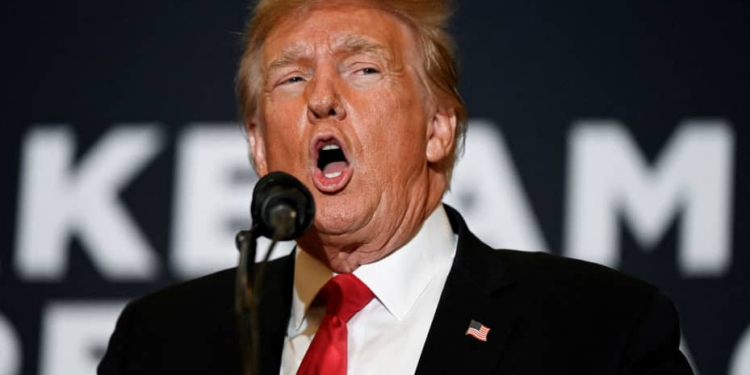United States President Donald Trump is reportedly considering placing Nigeria and 35 other countries under a new travel ban or visa restriction, an internal memo obtained by The Washington Post revealed.
The memo, reportedly signed by Secretary of State Marco Rubio, outlined that the identified countries have 60 days to meet new, undisclosed requirements set by the U.S. State Department or face visa restrictions or outright travel bans.
The draft list includes 25 African nations such as Nigeria, Angola, Ghana, Ethiopia, Egypt, and Cameroon, raising concerns of targeted policies against the continent.
Other countries on the list include Antigua and Barbuda, Dominica, Saint Kitts and Nevis, Bhutan, Cambodia, Syria, and Tonga.
While official comment was yet to be made by the White House, the memo revealed that the countries in question were expected to submit initial plans of action by Wednesday to demonstrate compliance with U.S. security and immigration standards.
This is not the first time the Trump administration has considered mass travel restrictions. In March, a travel ban was proposed on 43 countries from which Nigeria was exempted.
The countries were classified into three categories – Red stands for 11 countries whose nationals were to be fully barred from entering the U.S; Orange represents 10 countries whose visa issuance would be significantly restricted while Yellow stands for nations given a 60-day window to address specific U.S. concerns.
LEADERSHIP recall that President Trump earlier in June signed an executive order placing a complete travel ban on nationals from 12 countries, including Afghanistan, Iran, Yemen, Sudan, and Libya.
Since beginning his second term in January, Trump has intensified his administration’s immigration policies, resulting in mass deportations and tougher entry regulations.
The expanding list of travel bans forms part of a broader national security framework that critics argue disproportionately affects developing nations, particularly in Africa.
While U.S. officials cited national security as the rationale behind these sweeping measures, critics warned that such policies risk diplomatic backlash, economic consequences, and worsening perceptions of U.S. foreign relations, especially among African nations that have long maintained partnerships with Washington.
Nigeria, Africa’s most populous country and one of its largest economies, was yet to respond officially to the supposed restriction.
However, experts believed that if implemented, the ban could impact bilateral relations, business, and the Nigerian diaspora in the United States.



